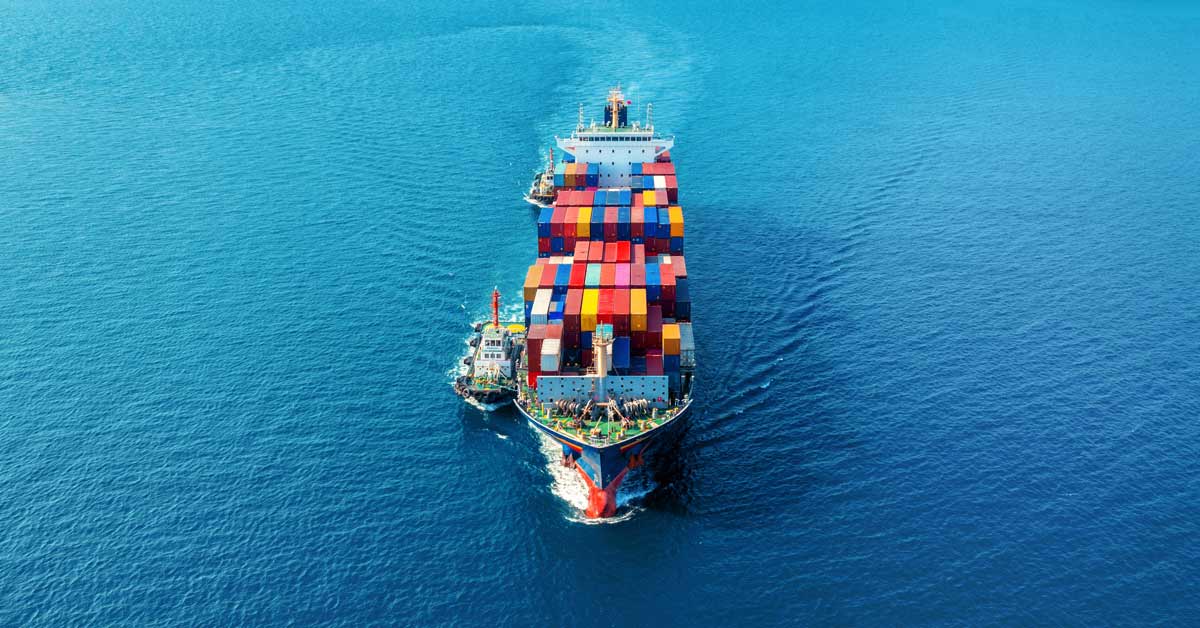3 min read
FuelEU Maritime Regulation Creates Revenue Potential with Pooling
ResourceWise
:
Nov 13, 2024 12:00:00 AM

FuelEU, the regulation aiding in the maritime industry’s transition to low-carbon fuels, officially begins January 1, 2025. Some fleets and shipping companies are actively developing a compliance strategy. Yet many others have a marine biofuels solution in place with adoption that goes beyond compliance.
This sounds like great news for the latter but a mounting problem for the former. However, one provision within FuelEU—pooling—could prove mutually beneficial for both.
About FuelEU
Introduced in July 2023 as an integral part of the European Commission’s Fit for 55 legislative initiative, the FuelEU Maritime Regulation aims to cut EU greenhouse gas emissions by at least 55% by 2030. The regulation prioritizes the adoption of renewable, low-carbon fuels and clean energy technologies for maritime vessels. These elements are crucial for transitioning this carbon-intensive sector into a greener future.
FuelEU Maritime limits the yearly greenhouse gas (GHG) intensity of energy used by ships with over 5,000 gross tons of cargo that dock at European ports. Starting with a 2% reduction by 2025, the target rises to an 80% reduction by 2050. These numbers become progressively higher for two primary reasons:
- To encourage the development and adoption of new technology aimed at reducing emissions.
- To increase the broad-scale production of renewable and low-carbon fuels across the international maritime sector.
Beyond CO2 emissions, FuelEU also covers methane and nitrous oxide emissions throughout the entire lifecycle of the fuels used on vessels.
The regulation mandates zero-emission operations for ships at their dock space. While in ports, they must utilize an on-shore power supply (OPS) or other zero-emission technologies.
This requirement applies to passenger ships and containerships. The overall objective is to reduce air pollution in ports—particularly those near densely populated areas.
FuelEU Maritime adopts a life-cycle, goal-driven, and technology-neutral framework. It’s designed to encourage innovation in sustainable fuels and energy conversion technologies. This allows operators the flexibility to choose fuels that best suit their specific ships or operational needs.
The regulation also includes various mechanisms in terms of reaching compliance. This can help existing fleets develop strategies over time while rewarding early adopters for their proactive investments in energy transition.
Fuel Pooling’s Benefit for Early Adopters of Biofuels
FuelEU pooling is an optional system that lets shipowners merge their vessels' emissions to align with the EU's FuelEU Maritime regulation. Shipowners have the option to pool emissions from different companies (as long as all involved vessels are confirmed by the same authority). The total emissions from these combined ships must balance within the regulation's compliance levels.
How It Works
To initiate a pool, shipowners need to calculate their compliance balances, formally register their ships’ participation, and choose a verifier. This verifier documents the pool's structure and the distribution of compliance balances within the FuelEU database.
Benefits of Pooling
Pooling offers excellent benefits across the maritime industry.
For one, it provides a strategic method for transitioning to low-carbon operations over time. If some ships have a larger carbon footprint or only part of a fleet has transitioned to renewables, pooling offers a realistic solution. Penalties for non-compliance can be avoided while giving ships the time they need to upgrade to new technology or adopt renewable fuels.
Perhaps more interestingly, pooling also encourages a market for green shipping. Ships that exceed the set intensity targets can leverage their surplus compliance by selling it to other ships that need it. The surplus can provide an additional revenue source for these companies as a further benefit for transitioning to renewables.
According to a recent report available in Prima CarbonZero, a large shipping company with a high biofuel adoption rate acknowledged the opportunity for surplus sales.
The precise value of the surplus is not certain. It would likely fall somewhere between the penalty costs for non-compliance and the bio-bunkering costs. Considering the stiff penalties FuelEU carries for non-compliance, the biofuel prices will likely be the main driver of these costs.
Get Key Insights on Bio-Bunkering and Marine Biofuels with On-Demand Webinar
Marine fuels are quickly becoming a focal point in the transition to renewables. The bio-bunkering industry is moving and changing very rapidly, with spaces like Singapore and the Amsterdam-Rotterdam-Antwerp (ARA) region championing adoption and usage.
We invite you to view our insightful webinar that covers all the critical details surrounding the promising future of marine biofuels.
 On-Demand Webinar: The Rise of Marine Biofuels
On-Demand Webinar: The Rise of Marine Biofuels
Topics covered:
- The current state of the bio-bunkering industry
- Key bio-bunkering locations and market influences
- Fuel pricing analysis
- Regulations encouraging adoption
- Future outlook for the marine fuels market
The webinar is presented by Ben Salt, Market Analyst and Consultant at ResourceWise who offers expert analysis and insights on bio-bunkering trends, policies, and decarbonization advancements.
Anyone involved in shipping and marine fuels won’t want to miss this highly informative overview of the bio-bunkering market. View the webinar today.





